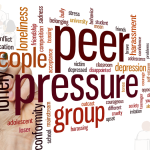Education is undeniably the cornerstone of development, particularly national progress. Therefore, for any country to achieve growth and development, it must prioritize education comprehensively.
The Nigerian education system has undergone numerous fluctuations since its inception, including the introduction of the 6-3-3-4 system. Various governments with distinct educational agendas, ideologies, and prioritization levels have significantly influenced the educational system in Nigeria.
While this complex history continues to shape the nation’s educational landscape, let’s carefully look at the strengths and weaknesses of the Nigerian education system.
Table of Contents
Strengths of the Nigerian Educational System
-
Dedicated teachers
One undeniable strength of the Nigerian education system is the unwavering dedication exhibited by many teachers. Despite facing financial challenges, with some earning minimum wages or experiencing months-long delays in payment, these educators continue to show up, driven by their deep passion and commitment to their profession.
Their commitment often becomes a source of inspiration, leading to the cultivation of more dedicated teachers among students. This resilience within the teaching community contributes significantly to how far the Nigerian education system has come.
-
Skilled and competent professionals in various fields
The Nigerian education system not only nurtures dedicated teachers but also shapes individuals into skilled and competent professionals across various fields. It’s a wellspring of talent that extends beyond the realm of education, giving rise to exceptional doctors, lawyers, artists, musicians, actors, scientists, economists, and more.
This diverse pool of professionals enriches the nation’s human resources, contributing significantly to various sectors and reflecting the breadth and depth of talent within the educational system in Nigeria.
Join our WhatsApp community today. Connect with like-minded people and share your ideas.
-
Diverse and inclusive curriculum
The Nigerian education system stands as a testament to its commitment to diversity and inclusion. Recognizing the nation’s rich tapestry of cultures and backgrounds, it has implemented specialized programs such as the Nomadic and Distance learning educational system.
These initiatives aim to ensure that education reaches every corner of the country, catering to the unique needs and circumstances of various communities. Aside from promoting access to education and making surviving in university easier for all Nigerians, this diversity and inclusivity in the curriculum celebrates the nation’s rich mosaic of identities and experiences.
-
Tailored educational programs for diverse communities
One significant strength of the Nigerian education system lies in its ability to develop educational programs that cater to the unique needs of diverse societal groups. Nigeria, with its rich cultural tapestry and multitude of languages, recognizes the importance of tailoring education to fit various communities.
This approach ensures that educational content is culturally relevant and accessible to learners from diverse linguistic and cultural backgrounds. For example, in regions with distinct native languages, schools often offer bilingual education or incorporate local languages into the curriculum.
Not only does this facilitate better comprehension but also serves to preserve and promote indigenous languages. This in turn contributes significantly to the preservation of Nigeria’s cultural heritage.
Weaknesses of the Educational System in Nigeria
-
Insufficient funding
One of the most pressing challenges facing the Nigerian education system is the chronic issue of underfunding. This problem stems from the budget allocation decisions made by successive administrations. Often, education receives a paltry percentage of the national budget, leading to inadequate resources for schools and institutions.
This financial scarcity is a root cause of recurring issues like strikes by bodies like ASUU and the existence of TETFUND. To foster a conducive learning environment, learning materials must be made accessible and affordable, particularly in government-owned schools.
The absence of these essential resources hampers the teacher’s ability to effectively convey lessons to students. Moreover, insufficient funding affects research endeavours, where financial support is essential for efficient completion.
Unfortunately, research is predominantly emphasized in tertiary education, leaving basic education largely untouched. This oversight represents a missed opportunity to address educational challenges in Nigeria comprehensively.
A robust commitment to research across all levels of education could position Nigeria as a global hub for learning and innovation.
-
Not prioritizing academic and nonacademic staff welfare
Every individual contributing to the education of the nation’s future generation plays a crucial role in nation-building. Their decisions and actions have the power to shape the destiny of children. Recognizing this immense responsibility, their welfare must be accorded the highest priority.
Unfortunately, in Nigeria, this is often not the case. For instance, the Academic Staff Union of Universities (ASUU), whose strikes have disrupted the lives of millions of Nigerian university students for extended periods, as they press for their demands from the federal government.
Moreover, some state governors appear more focused on other infrastructure projects like iconic buildings and flyovers, often neglecting their state teachers by failing to pay their salaries for several months.
This disregard for the well-being of those entrusted with educating the nation’s youth is a critical issue that must be addressed to ensure a thriving education system.
-
Nepotism’s influence on the Nigerian education system
Nepotism has permeated the Nigerian government system, casting a shadow on ministries across the board, including the Ministry of Education. Several administrations have treated these appointments as rewards for political loyalty, leading to the appointment of individuals ill-equipped for the roles they assume.
Lacking the technical knowledge necessary for informed decision-making in education, they often make ill-advised choices or simply maintain the status quo. This approach stifles progress in the Nigerian education system, contributing to its current state of affairs.
The educational system in Nigeria can only advance when appointments are based on merit, and individuals with the expertise and passion for education occupy these critical roles.
-
Lack of research implementation
Another notable weakness in the Nigerian educational system is the failure to put research findings and strategies into practice. This shortfall hinders the system’s ability to adapt and improve.
Conducting research and developing strategies are essential steps, but their impact is minimal if not translated into meaningful changes in classrooms and educational policies.
To strengthen the education system, there must be a commitment to implementing research outcomes and utilizing effective strategies for the benefit of both educators and students.
Subscribe to our newsletter. Don’t miss out on our latest opinion insights.
Conclusion
Recognizing the strengths and weaknesses of the Nigerian education system is the first step toward meaningful reform. Nigeria must place education at the forefront of its national agenda, allocating the necessary resources, prioritizing the welfare of educators, promoting merit-based appointments, and implementing research findings to drive positive change.
Only through these concerted efforts can Nigeria’s educational system truly evolve, ensuring a brighter future for generations to come.
Edited by Priscilla Ajayi.
About Author
- Oyinade Afe is a versatile writer, designer, and filmmaker with a passion for telling stories. With more than 3 years of experience in content writing, she excels in crafting compelling narratives, visually stunning designs, and producing engaging films. Oyinade is dedicated to authenticity, creativity, and inspiring others through her work.
Latest entries
 LifestyleFebruary 7, 2024When to Consult a Financial Advisor to Manage Your Earnings
LifestyleFebruary 7, 2024When to Consult a Financial Advisor to Manage Your Earnings Business InsightsJanuary 8, 2024How to Conduct a User Interview for a Product: From Preparation to Execution
Business InsightsJanuary 8, 2024How to Conduct a User Interview for a Product: From Preparation to Execution
 LifestyleDecember 1, 2023Peer pressure Among Nigerian Youth: The Good and Bad
LifestyleDecember 1, 2023Peer pressure Among Nigerian Youth: The Good and Bad

